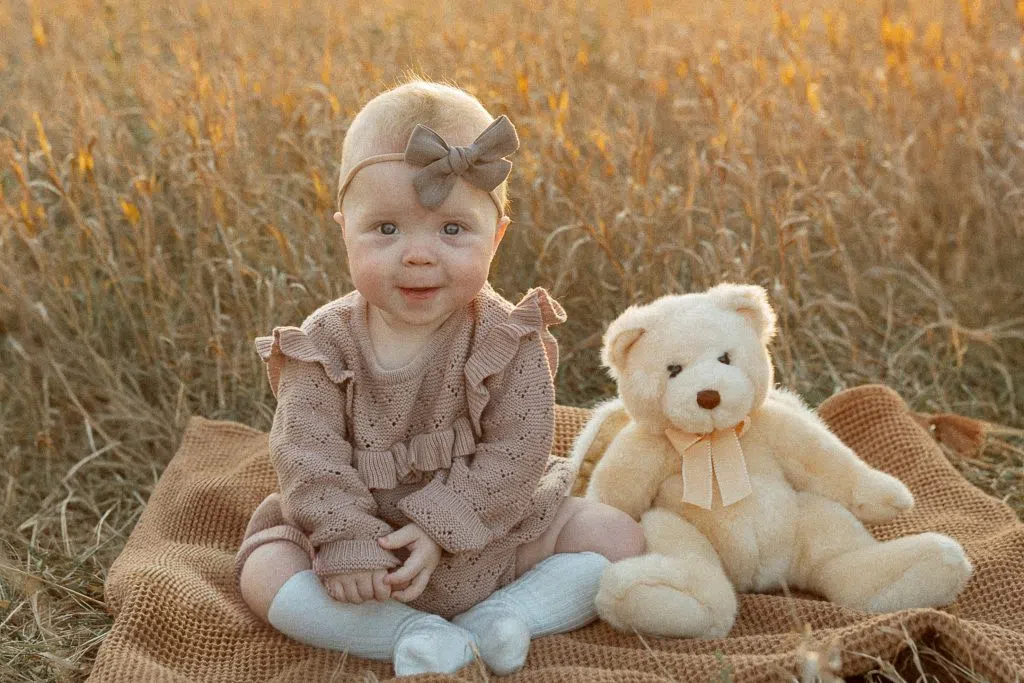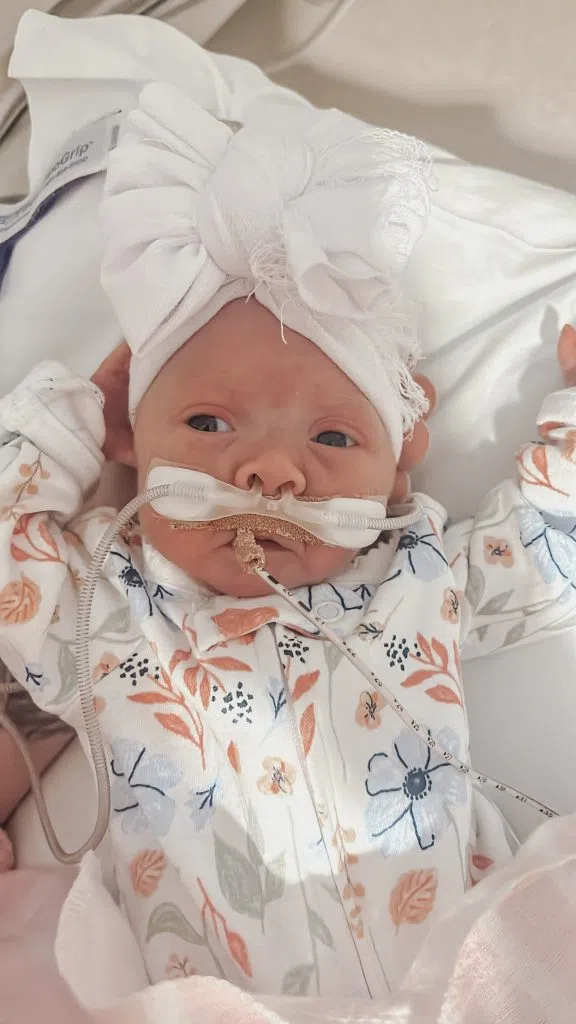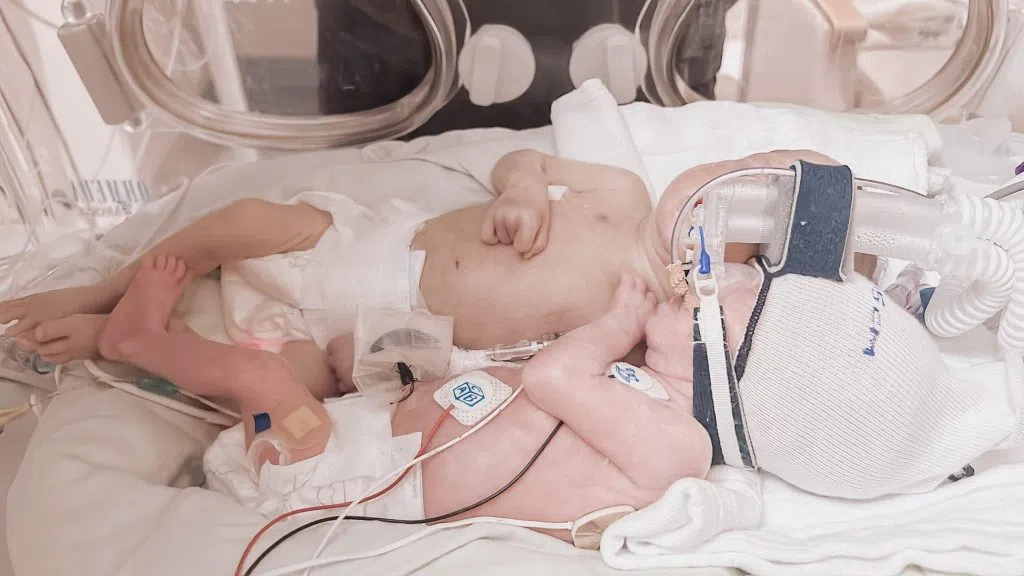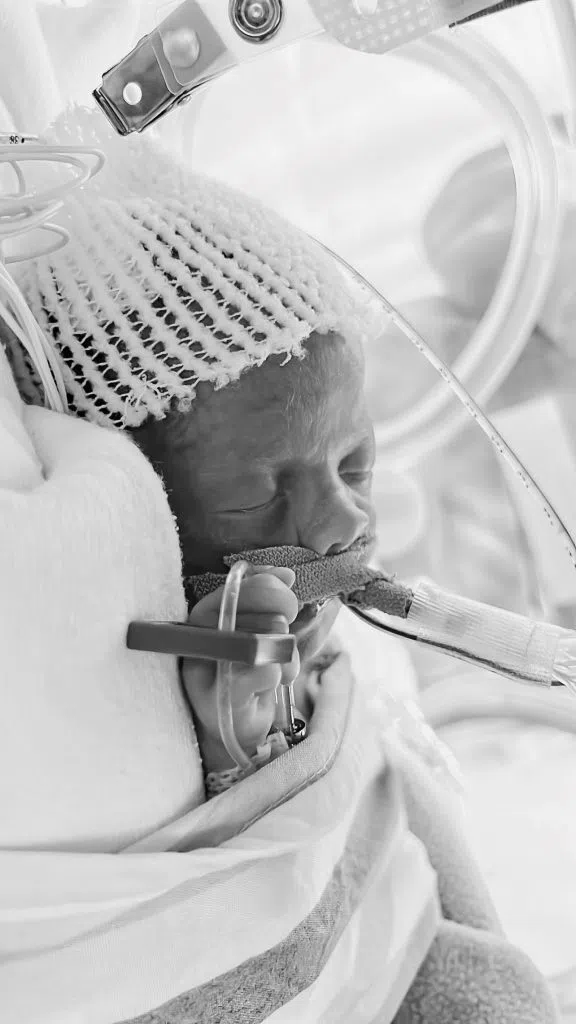Regina NICU creates lasting memories for Torquay-area family
Welcoming two babies at once is a big change for a family. When twins are born early, needing extra medical attention following their birth, families often find they require support to understand and embrace their new reality.
Ashley Campbell felt supported – especially on her most difficult days – in our neonatal intensive care unit (NICU) in the Rawlco Centre for Mother Baby Care, at Regina’s General Hospital.
Ashley gave birth to her twin daughters, Stevie and Jensen Brown, on Jan. 4, 2024 by C-section after it was discovered her uterus was rupturing. This is a rare condition which essentially leaves a hole in the uterus and abdomen, causing the mother severe blood loss and a slowing of the heart rate and loss of oxygen for the baby. The girls were born 28 weeks into Ashley’s pregnancy. Immediately after the delivery, both Ashley’s babies were taken to our NICU for emergency care where they had different needs and outcomes.
“Stories like ours aren’t talked about a lot,” says Ashley. “People should be aware that so much good happens in the NICU, but there are also hard times there and those stories aren’t easy.”
Stevie went home after 87 days in our NICU while baby Jensen only lived for six days. Ashley is grateful for the tremendous support her family received as they moved through losing one newborn to watching their other baby grow and develop under the diligent care of our NICU nurses and doctors.
“I was so lucky to have so much support at home that I could basically live at hospital for three months. The NICU team made me feel welcome and invited me to do my own thing. But it was very hard to go back into the NICU every day after losing Jensen,” says Ashley, who was scared for Stevie.
“Stevie was so small, only two pounds and six ounces. I was terrified to hold her and worried I could possibly hurt her if I moved her too much, so I was very cautious, but the nurses kept telling she would be okay. They are angels on earth!”
In her earliest days, Stevie was intubated and later provided oxygen through a continuous positive airway pressure (CPAP) machine. She needed oxygen for 85 of her 87 days in our NICU, to help her breath until her young lungs developed fully.
“We didn’t see her face for the first two-and-a-half months because of the CPAP,” shares Ashley.
Stevie also experienced a bleed on the left side of her brain. It had been discovered during an ultrasound scan when she was four days old, a common procedure for newborns in our NICU. She was monitored with regular ultrasounds during her stay to track if it was healing.
“It was very surreal to watch someone so small grow in front of your eyes and move from an isolette into a bassinet and then a crib.”
Ashley grew more confident about caring for Stevie as she spent more time in our NICU. “I got more comfortable as I got to know her cues. When you get close to the time that your newborn is ready to leave the NICU, you are ready too because you really get to know your baby,” she confides.
“We had to go back to the hospital after a week of her being home because of some breathing issues, but if I had not been so involved with her in the NICU, I would not have caught her struggling.”
Today, Stevie is doing well, while she continues to be monitored by a neurosurgeon and her pediatrician. Ashley reflects on Jensen’s experience and the importance of the NICU equipment to her care. “Jensen was fine until she wasn’t,” she says. She had her partner, Brendan Brown, by her side when the NICU team described Jensen’s condition and prognosis to them. Her lungs kept collapsing despite having two chest tubes within 48 hours of her birth. Air was collecting in her chest wall, which happens when air leaks out of the lungs. In Jensen’s case, the air was pushing on her heart.
Additionally, she developed a brain bleed and scans of her brain showed she was having seizures.
“The NICU team laid everything out for us. It was not likely she would be coming out of the NICU and we understood that the machines were keeping her alive. We had to decide whether we wanted them to continue to care for her.”
The NICU nurses made a very difficult decision as easy as possible for Ashley and her family, who were there to say goodbye when Jensen passed away on Jan. 10, 2024. “When we knew Jensen was getting close to the end, the nurses made everyone feel very at peace with what was happening,” says Ashley. “Every single nurse and doctor made sure we were okay. They helped us create the best memories for our family.”
Ashley knows she is not alone in her experience. She hopes other families recognize themselves in her story and feel less alone as a result. She also recognizes that the care her babies received was possible, in part, because of the essential equipment and technology available in our NICU.
“It is important for people to know their donations are helping so many babies and families like mine. Technology keeps changing and because of that, babies like Jensen may be saved in the future.”
“There is nothing more important than our children and the care they receive when they need medical attention. We always hope for the best outcome for each and every one,” says Dino Sophocleous, president and CEO, Hospitals of Regina Foundation. “Our NICU sees approximately 500 fragile babies every year. The equipment and technology in our NICU is critical to the vital care these babies need. Our annual investments in Regina’s NICU are possible because of the philanthropic spirit of our southern Saskatchewan community. This support is essential if we are to provide the best care possible to our tiniest patients, as close to home as possible.”
Story by: Karen Schlamp





